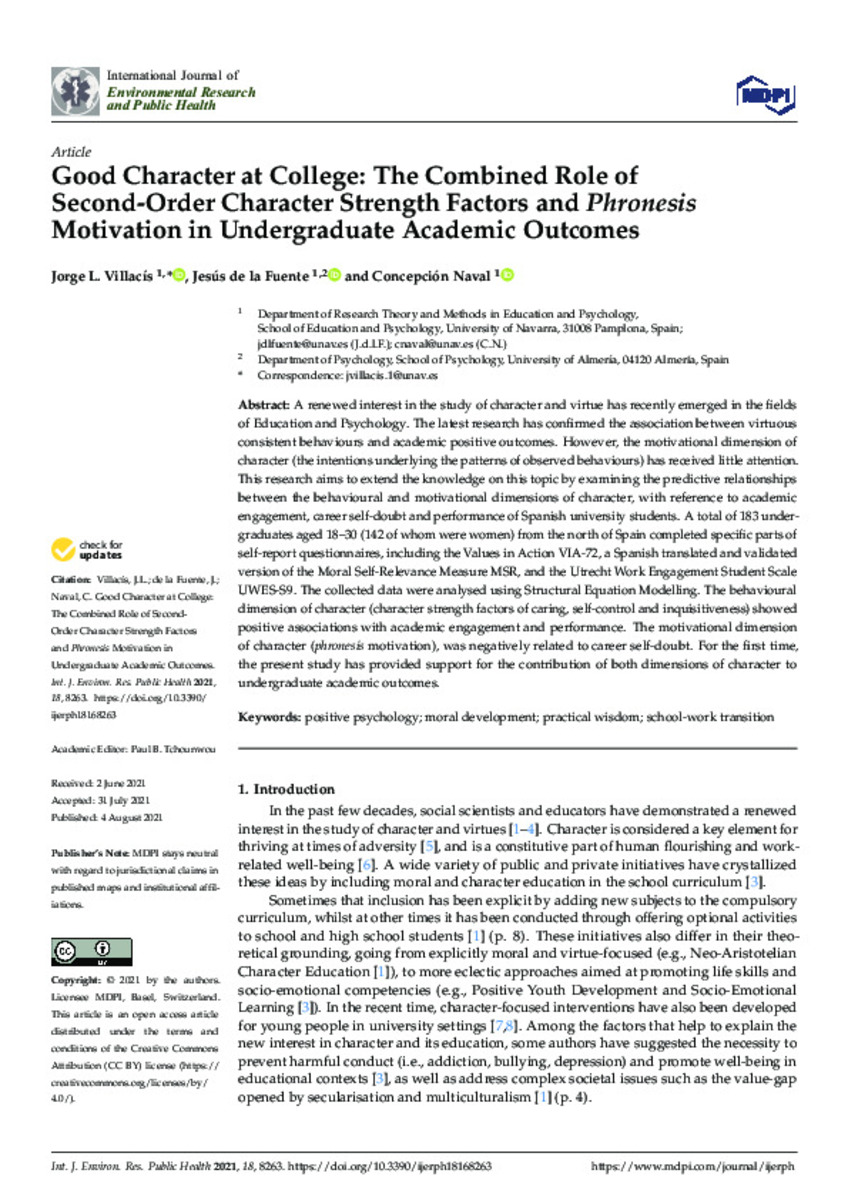Good character at college: the combined role of second-order character strength factors and phronesis motivation in undergraduate academic outcomes
Keywords:
Materias Investigacion::Educación
Materias Investigacion::Ciencias de la Salud::Psiquiatría y psicología
Positive psychology
Moral development
Practical wisdom
School-work transition
Note:
This article is an open access article
distributed under the terms and
conditions of the Creative Commons
Attribution (CC BY) license (https://
creativecommons.org/licenses/by/
4.0/)
Citation:
Villacís-Nieto, J.L. (Jorge Luis); Fuente-Arias, J. (Jesus) de la; Naval, C. (Concepción). "Good character at college: the combined role of second-order character strength factors and phronesis motivation in undergraduate academic outcomes". International Journal of Environmental Research and Public Health. (18), 2021, 826
Statistics and impact
0 citas en

0 citas en

Items in Dadun are protected by copyright, with all rights reserved, unless otherwise indicated.











